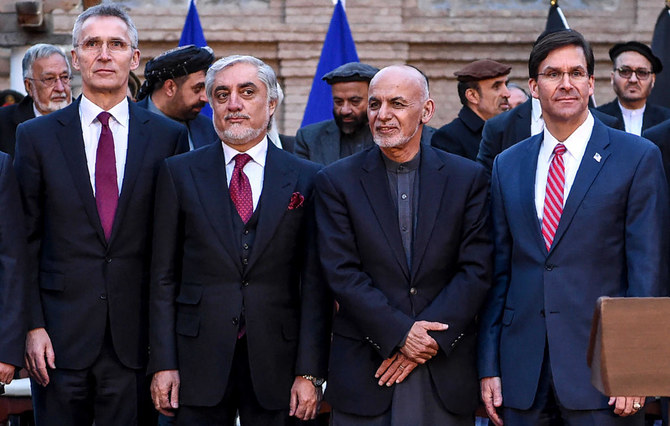NEW DELHI: US Vice President JD Vance will embark on a four-day visit to India on Monday as the two countries seek to unlock economic opportunities and negotiate a bilateral trade deal.
Vance will meet Prime Minister Narendra Modi in New Delhi for talks on the economy, trade and geopolitical ties. Vance’s visit is seen as an important diplomatic mission by President Donald Trump’s administration, and it coincides with a rapidly intensifying trade war between Washington and Beijing, which is New Delhi’s main rival in the region.
A trade deal between India and the US could significantly enhance economic ties between the two countries and potentially strengthen diplomatic ties.
The US is also India’s largest trading partner, with bilateral trade valued at $190 billion until recently.
India’s foreign ministry has said the visit will “provide an opportunity for both sides to review the progress in bilateral relations” and two leaders will “exchange views on regional and global developments of mutual interest.”
Here’s what to know more about Vance’s visit:
Bilateral trade agreement
Vance’s arrival in India comes weeks after Director of National Intelligence Tulsi Gabbard was in India for a geopolitical conference and two months after Modi met Trump in Washington.
Modi was among the first leaders to visit the US and hold talks with Trump after he returned to the White House. During his visit, Modi hailed a “mega partnership” with the US and kickstarted a negotiation process to minimize the possible fallout of Trump’s tariffs after it had already cut tariffs on a range of US goods.
Regardless, Trump targeted India with a 26 percent levy as part of his now-paused tariff program, which has provided temporary relief for Indian exporters.
During his visit, Modi sought to soften impending trade barriers by saying he was open to reducing more tariffs on US goods, repatriating undocumented Indian nationals and buying military gear. The two countries also agreed to start talks toward clinching the bilateral trade agreement.
Modi on Friday said he spoke with Elon Musk and said he and the SpaceX CEO “discussed the immense potential for collaboration in the areas of technology and innovation,” saying “India remains committed to advancing our partnerships with the US in these domains.”
India’s deep ties to US business
India is a close partner of the US for bilateral trade, foreign direct investments, defense cooperation, and an important strategic ally in combating the rising influence of China in the Indo-Pacific region.
It is also part of the Quad, which is made up of the United States plus India, Japan and Australia and seen as a counter-balance to China’s expansion in the region.
Leading UScompanies such as Apple Inc. and Google have expanded operations in India in recent years. Last month, Musk’s Starlink entered into agreements with two of India’s top telecom operators to provide satellite-based Internet services.
To further boost trade ties, the US and India have set an ambitious target of more than doubling their bilateral trade to $500 billion by 2030 under the expected trade deal agreement.
The negotiations are especially urgent for New Delhi as it could be hit hard by Trump’s reciprocal tariffs, particularly in sectors of agriculture, processed food, auto components, high-end machinery, medical equipment and jewelry. This poses a significant challenge for Modi government as it hopes to spruce up the country’s economy and generate jobs with an export-led recovery.
Modi and Trump already share rapport
Modi established a good working relationship with Trump during his first term in office. It now appears that the two leaders are likely to further boost cooperation between their countries, particularly in trade as Chinese President Xi Jinping is aiming to position Beijing as a reliable trade partner in the Asia-Pacific region amid rising tensions with Washington.
India has also already taken a number of steps to win over Trump. It will purchase more oil, energy and defense equipment, including the fifth-generation stealth fighter jets, from the US
The U.S, however, wants greater market access for its agricultural and dairy products in India, but New Delhi has been reluctant so far as the farm sector employs bulk of the country’s workforce.
Family trip for Vance
Vance’s visit to India marks his first official trip to the country, which has added significance for the second family. His wife Usha Vance — a practicing Hindu — is the daughter of immigrants from South India.
In his memoir “Hillbilly Elegy,” Vance described his wife a “supersmart daughter of Indian immigrants” whom he met at Yale Law School. Usha’s parents moved to the US in the late 1970s.
Vance will be accompanied by Usha, their children and other senior members of the US administration, and the couple will visit Indian cities of Jaipur and Agra and participate in engagements at cultural sites, a readout from the White House said.




























